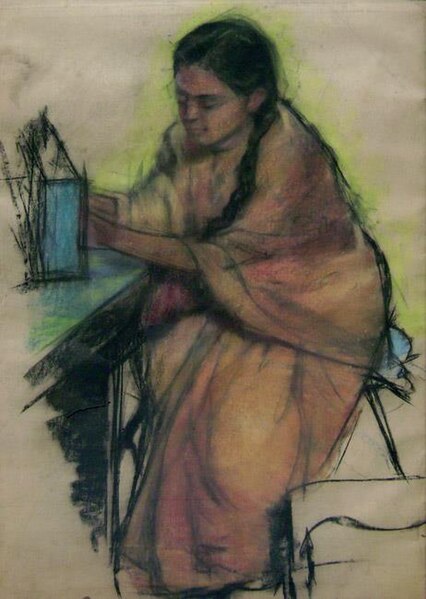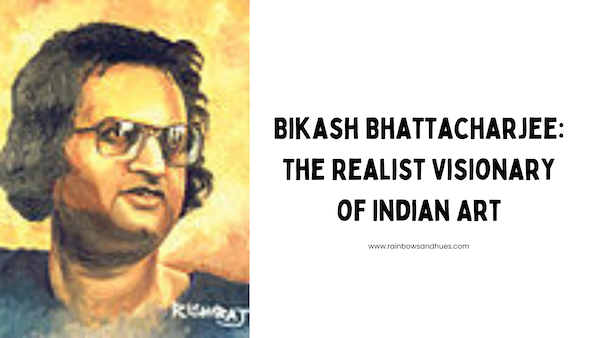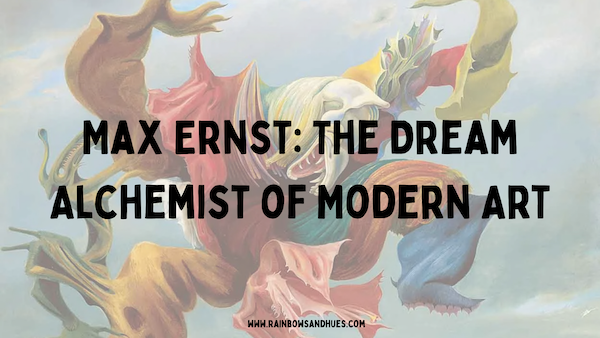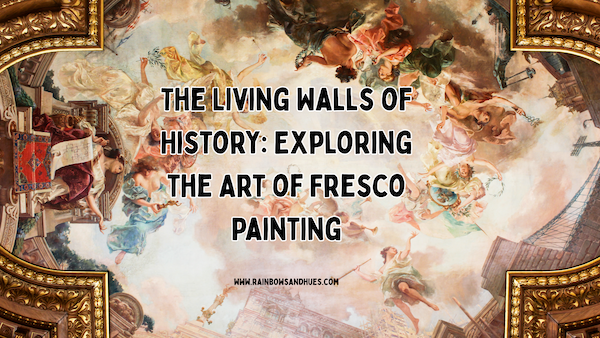Bikash Bhattacharjee, an iconic figure in the world of Indian art, is celebrated for his mastery of realism and surrealism. Born on June 21, 1940, in Kolkata, West Bengal, his art reflected the socio-political landscape of post-independence India. Known for his ability to capture emotions and societal narratives with extraordinary precision, Bhattacharjee remains a towering presence in the history of modern Indian art.
Also Read: Alcohol Ink Art: An Exhaustive Guide
Early Life and Education
Bikash Bhattacharjee grew up in Kolkata during a period of significant socio-political upheaval. Losing his father at a young age, he experienced financial hardships that deeply influenced his outlook on life. These challenges shaped his sensitivity towards the struggles of the common people, which later became a recurring theme in his work.
Bhattacharjee pursued formal art education at the Government College of Art and Craft in Kolkata. After completing his studies in 1963, he began teaching at the Indian College of Art and Draftsmanship. This role not only strengthened his artistic foundation but also allowed him to inspire the next generation of artists.
Artistic Style and Influences
Bhattacharjee’s art is renowned for its hyper-realistic style. His works often explored the intricate layers of human emotions, societal norms, and the stark realities of life. Drawing inspiration from the works of Renaissance masters and modern realist painters, he blended classical techniques with a distinctly Indian context.
His ability to depict textures, light, and shadow was unparalleled. Bhattacharjee’s paintings often felt alive, with every detail meticulously rendered. His portrayal of women, particularly, stood out, capturing their complexities, struggles, and inner strength.

Themes in His Work
Bhattacharjee’s art delved into various themes, reflecting his keen observation of society.
-
Realism with Social Commentary: His paintings often depicted the struggles of the urban middle class and the marginalized. Works like The Rickshaw Puller showcased the resilience of the working class.
-
Surrealism and Mystery: Some of his pieces ventured into surrealism, exploring the subconscious mind. These works carried a dreamlike quality, blending reality with imagination.
-
Women as Central Figures: Bhattacharjee frequently painted women, presenting them in diverse roles. Whether it was a traditional housewife or a modern woman, he captured their essence with dignity and depth.
-
Political and Cultural Reflections: During the turbulent times of the 1970s in West Bengal, Bhattacharjee’s art became a voice for the disenfranchised. His work reflected the socio-political unrest, poverty, and the human cost of change.
Also Read: Batik Art: A Timeless Craft Bridging India and Indonesia
Notable Works
Some of Bikash Bhattacharjee’s most celebrated works include:
-
The Durga Series: These paintings depicted the goddess Durga with a unique blend of realism and mysticism, reflecting the cultural ethos of Bengal.
-
The Doll Series: These hauntingly surreal works featured lifelike dolls, symbolizing innocence and hidden fears.
-
Portraits of Women: His portraits captured the multifaceted nature of Indian women, portraying their beauty, strength, and vulnerability.
Awards and Recognition
Bikash Bhattacharjee’s contributions to art earned him numerous accolades. He received the prestigious Padma Shri in 1988, recognizing his impact on Indian art. He was also honoured with the National Award by the Lalit Kala Akademi and the Gagan-Abani Puraskar by Visva-Bharati University.
His works have been exhibited widely, both in India and internationally. From the Jehangir Art Gallery in Mumbai to prestigious venues in Europe and the United States, Bhattacharjee’s art resonated with diverse audiences.
Legacy and Influence
Bikash Bhattacharjee’s influence on Indian art is profound. His ability to tell stories through hyper-realistic imagery set him apart from his contemporaries. By addressing societal issues and human emotions, he created art that was not only visually striking but also thought-provoking.
Also Read: Pattachitra: A Window into Ancient Indian Folk Art
Bhattacharjee’s works inspire artists, collectors, and art enthusiasts worldwide. Institutions like the National Gallery of Modern Art in New Delhi and the Academy of Fine Arts in Kolkata preserve and showcase his legacy.
Unknown Facts About Bikash Bhattacharjee
-
He had a deep love for cinema and drew inspiration from the visual storytelling techniques of filmmakers like Satyajit Ray.
-
Bhattacharjee often used his friends and family members as models for his paintings, lending a personal touch to his art.
-
Despite his success, he remained deeply connected to his roots and often avoided the limelight, focusing instead on his craft.
The Timeless Appeal of His Art
Bikash Bhattacharjee passed away on December 18, 2006, but his art continues to captivate audiences. His ability to weave realism with the complexities of human life ensures his place as one of India’s greatest artists. For those discovering his work, Bhattacharjee offers a window into the soul of a society grappling with change, resilience, and hope.
Through his paintings, Bhattacharjee reminds us of the transformative power of art. His works are visual masterpieces and profound commentaries on the human condition. For art enthusiasts and collectors alike, exploring Bikash Bhattacharjee’s legacy is a journey into the heart of Indian modernism.
Also Read: Aipan Art: Preserving Heritage Through Patterns and Colors
***
Hop over to www.rainbowsandhues.com to explore exciting offers on arts & craft supplies on our website!
Follow @rainbowsandhues on Instagram to get regular information on new products and deals!




